





Blackcurrant
Blackcurrant is obliged by the name to Old Russian expression "смородь" that meant a strong smell. And it so, really, from all berries blackcurrant has the most pronounced aroma. The strong smell is inherent in both leaves of blackcurrant and berries. The currant bush concerns to family gooseberry, in height can reach up to 2 meters. Blackcurrant berries large, round, saturated black color.
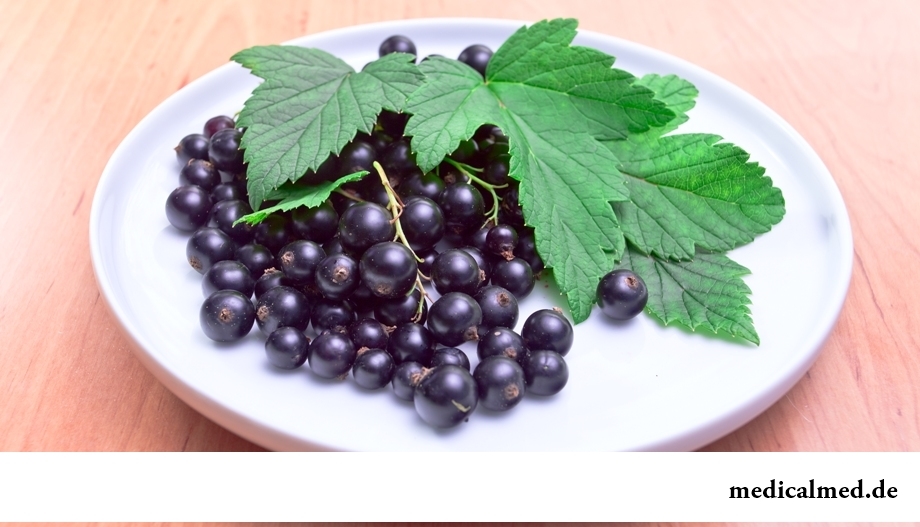
Useful properties of blackcurrant
Blackcurrant – a source of many useful substances and vitamins. Besides, blackcurrant berry very low-calorie: it contains 38 Kcal.
In blackcurrant berries the advantage is presented by the content of numerous useful substances:
- Group K vitamin;
- Tannins;
- Vitamins C, In, P, E;
- Pectins;
- Carotene (vitamin A);
- Saccharites;
- Phosphoric acid;
- Essential oil;
- Salts of phosphorus, potassium and iron.
In addition to the huge content of vitamin C in blackcurrant berries its leaves include in the structure such elements as:
- Magnesium;
- Sulfur;
- Phytoncides;
- Manganese;
- Silver;
- Lead;
- Copper;
- Essential oil.
In berries of blackcurrant and leaves the content of vitamin C is so high that for ensuring daily need of the person for this substance, it is enough to eat only 20 berries.
Blackcurrant is considered a basis of a healthy and balanced diet which result are such positive changes in an organism:
1. Increase in immunity;
2. Improvement and strengthening of an organism;
3. Numerous advantage at any chronic diseases.
Berries of blackcurrant and leaves - fine prophylactic of the following disturbances of health:
- Diseases of cardiovascular system;
- Alzheimer's disease;
- Prevention of malignant new growths.
Blackcurrant is obliged by exclusive properties not only to the maximum content of vitamin C, but also presence of antotsianidin at it. These substances provide special advantage of blackcurrant as anti-oxidizing product.
These properties of blackcurrant provide important additional actions on an organism:
1. Disinfecting;
2. Antiinflammatory.
What is interesting, so is that leaves of blackcurrant of vitamin C contain much more, than berries. This fact causes use of the following properties of leaves of blackcurrant as remedy:
1. Tonic;
2. Antiseptic;
3. Antiinflammatory;
4. Antirheumatic;
5. Diuretic;
6. Clearing.
Use of blackcurrant
The advantage of blackcurrant consists in its ability to prevent development of diabetes, and also problems with sight. The regular use of berry of blackcurrant and leaves (in the form of teas) can interfere with decrease in mental abilities and development of a sclerosis in elderly people. At the progressing sclerosis the advantage of blackcurrant cannot be revaluated.
Useful properties of blackcurrant are widely used at treatment of diseases of respiratory tracts:
- Quinsy;
- Flu;
- SARS;
- Bronchitis;
- Pneumonia (pneumonia).
Juice mix from berries of blackcurrant, sugar and honey perfectly helps to cope with a severe cough. Antiseptic properties of blackcurrant help to cope with quinsy (even purulent). For this purpose it is necessary to rinse a throat the juice from fresh berries of blackcurrant divorced with clear water. At any catarrhal diseases it is useful to have tea from blackcurrant leaves.
Important property of blackcurrant is its recovery action on an organism. So, after the postponed serious illness and surgeries when the organism is strongly weakened, to patients is shown to use juice from blackcurrant berries.
Decoction from berries of blackcurrant and infusion from blackcurrant leaves perfectly help at the following diseases:
- Hypertension;
- Diseases of a liver and kidneys;
- Anemia;
- Gastritis;
- Stomach ulcer and duodenum;
- Bleeding of gums.
The essential advantage of blackcurrant is represented by use of its leaves at heart troubles, gastritis, gout. Infusion and broth from leaves of blackcurrant are capable to bring excess of uric and purine acids out of an organism. Besides, at disbolism and various bleedings such means has sudorific and soft laxative effect.
Still in the ancient time people used useful properties of blackcurrant from leaves, branches and kidneys for treatment of various skin diseases (dermatitis, diathesis, rash, eels). For this purpose and now appoint medical bathtubs from infusion of leaves of blackcurrant with addition of branches and kidneys. Folk healers derive the benefit of blackcurrant concluded in its leaves for treatment of a scrofula at children and at problems with sight long ago.
It is necessary to pick blackcurrant berries when they completely ripened. But if to miss 2 weeks after its full maturing, there is a loss of important vitamin C: instead of 100% the indicator can decrease to 70%. And leaves of blackcurrant need to be broken when they did not coarsen yet and did not dry up.
Properties of blackcurrant are widely used in cookery. From berries of blackcurrant prepare various products:
- Compotes;
- Kissels;
- Jam;
- Jams;
- Jelly;
- Desserts;
- Wine;
- Sauces;
- Wine.
Berries of blackcurrant use as a stuffing for pastries as ingredient for various marinades to meat and fish dishes.
It is very important that at preparations blackcurrant completely keeps the useful properties. So, currant can be frozen, frayed with sugar. These are the best options of preparation. A little less vitamins become after cooking and stewing of berry of blackcurrant.
Medicinal properties of blackcurrant apply also in cosmetology. Many creams, lotions and decorative cosmetics contain extract of this plant. Juice from berry of blackcurrant can be rubbed in skin around nails thanks to what they considerably become stronger. To get rid of freckles and a nevus pigmentosus, the blackcurrant berry mashed and imposed in the form of a mask will help to bleach skin.
Medicinal tea from leaves of blackcurrant not only is useful, but also very tasty. Therefore, it is possible to replace with such broth usual black tea. Leaves of blackcurrant can be prepared in the spring, to dry up and use during the whole year.
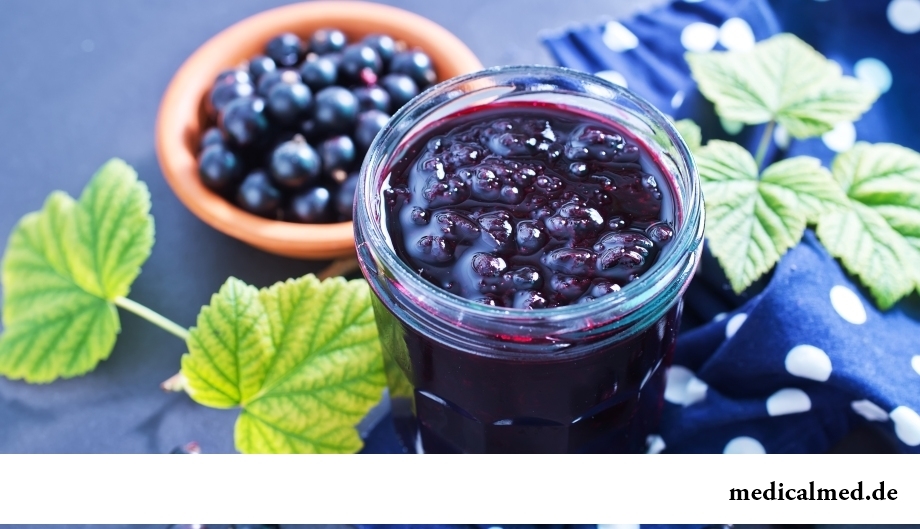
Contraindications to the use of blackcurrant
Vitamin K and phenolic connections as a part of berry of blackcurrant cause its contraindications in the following cases:
- Thrombophlebitis;
- Stomach hyperoxemia;
- Gastritis;
- Hepatitis.
Abuse in food of berries of blackcurrant and leaves in the form of broths can lead to increase in coagulability of blood. Besides, berries of blackcurrant are not recommended to be used after strokes and heart attacks and at threat of development of thrombosis.
Juice from blackcurrant is capable to cause allergic reaction in children, but in small doses promotes increase in hemoglobin blood.
During life the average person develops neither more nor less two big pools of saliva.

Work of a brain is extremely complex and in many respects is not studied yet. It is confirmed also by the features of thought processes which are shown in...
Section: Articles about health
Run - one of the most available and effective ways to revitalize the organism. Knowing about its extraordinary advantage, each of us at least once tried to make jogs, but only the few made these occupations regular. In spite of the fact that in jogging (easy an ozdor...
Section: Articles about health
New year, wedding, birthday, office party – an occasion to drink at the Russian person will always be. How to reduce a negative impact of alcohol by an organism and to avoid a condition of strong intoxication? The most correct council – to refuse the use of alcoholic drinks. Council is true, but not always feasible. We offer several advice which will help you in cases when it is impossible to avoid alcohol intake....
Section: Articles about health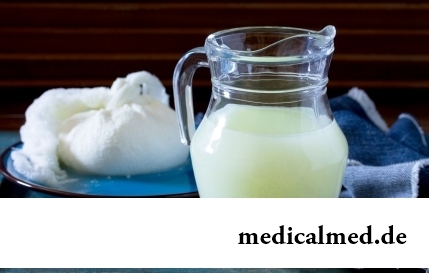
Milk and products of its processing by right occupy one of the main places in a diet of the modern person. They contain necessary...
Section: Articles about health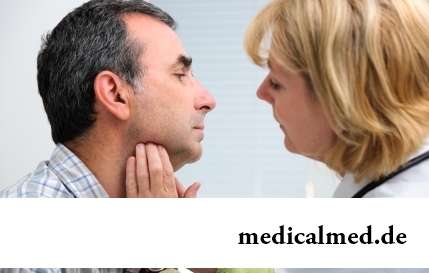
The endocrine system carries out extremely important role in a human body, practically all processes of life activity are regulated by it. Closed glands (hemadens) produce special biologically active agents – hormones which then o...
Section: Articles about health
One of the useful properties presented to the person by the nature is ability to feel fear. This ability is designed to signal about approach of a dangerous situation and to help to avoid in advance it to keep life. However if the fear is persuasive and is not reasonable, it can seriously limit possibilities of the person in respect of socialization and self-realization. Such pathological fear is called a phobia....
Section: Articles about health
Cold is such painful that each sigh becomes a victory, heat "knocks" down, and the ache in joints forces to think only about...
Section: Articles about health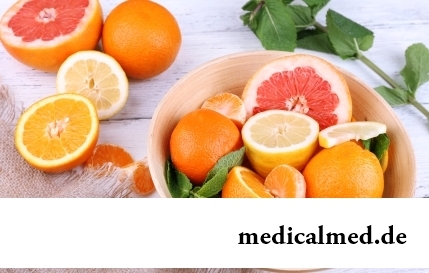
Smoking not only exerts a negative impact on the state of health of the consumer of tobacco products, but is an air polluter the substances potentially dangerous to people around. In recent years significantly the number of people, стремящ increased...
Section: Articles about health
Iodine - one of thirty most important microelements in our organism. The main role of iodine consists in synthesis of thyroid hormones of a thyroid gland - the substances which are responsible for the majority of exchange processes of an organism. It is known that thyroid hormones consist of iodine more than for 65%. The lack of iodine leads to decrease in production of hormones and, as a result, development of a hypothyroidism. The long condition of deficit can become a source of problems of the cardiovascular, bone, digestive SI...
Section: Articles about health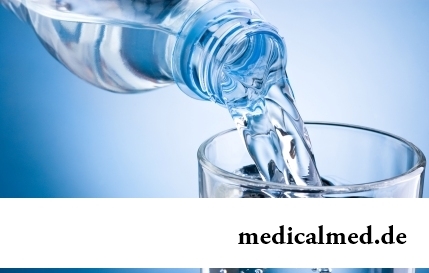
It would seem, about it there can be no disagreements: water is necessary for a human body for normal zhiznedeyatet...
Section: Articles about health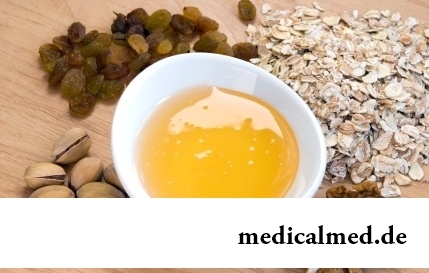
Let's begin with the fact that a separate illness which is called "adjournment of salts", just does not exist. In practice this household name of disbolism leading to development of a number of diseases. Pathological process consists that in an organism проис...
Section: Articles about health
Modern footwear is extremely various. It stopped being only protection for legs long ago. Today shoes, boots, barefoot persons choose not so much proceeding from their convenience and functionality how many being guided by outward, brand and an opportunity to add with them a stylish dress. At the same time, buying footwear, think of its safety a little. Meanwhile, many popular models can do essential harm to health....
Section: Articles about health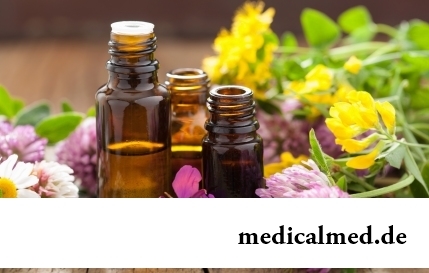
Any of us is not insured from a heavy illness of the loved one. Happens and so that someone from family members becomes lying бо...
Section: Articles about health
The state of health of the person depends on many factors. One of the most important is the constant, but not exhausting a physical activity. In the presence of various illnesses specialists often advise patients to do swimming which by right borrows ведущ...
Section: Articles about health
What woman does not dream of a beautiful and thick hair? While physicians developed difficult schemes on hair transplant, in the industry of hairdresser's art a few years ago there was a sensation – methods of hair extension appeared. It would seem, dreams came true: though the procedure of building also does not belong to the category cheap, practically any woman can increase several times the volume of hair, change their length and color – generally, to become the real beauty queen....
Section: Articles about health
Many parents of children at the age of 2-4 years face excessively whimsical behavior of the child. The kid exhausts constant crying...
Section: Slideshow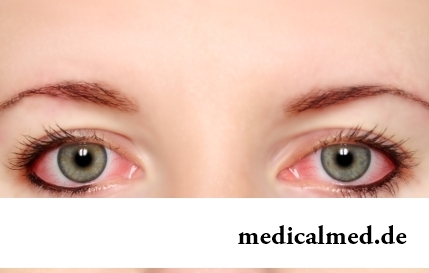
The sclera and mucous membrane of an eye are intensively supplied with blood vessels which problem - to saturate nervous tissues of body with nutrients and oxygen. In a normality vessels are almost not noticeable, however at their expansion (owing to истонч...
Section: Articles about health
Physical activity is necessary for normal functioning of a human body. At a lack of the movement joints cease to function, muscles atrophy, cardiovascular activity is broken and the metabolism worsens. The modern city rhythm of life does not provide the person with an adequate exercise stress, additional - sport is necessary. Tedious tasks the huge number of the people having those or ин exists sport not all to liking, but also...
Section: Articles about health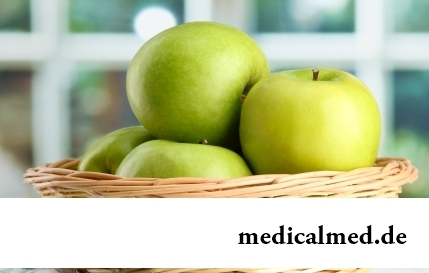
For most of the working people the problem of having a snack is particularly acute enough. Sooner or later there is a question: what is possible quickly for a sja...
Section: Articles about health
Season of activity of viral infections in the heat. Everyone can get sick, but probability of this unpleasant event it is possible and it is necessary to minimize. There is a number of rules, following to which will help or to avoid absolutely infection with flu or a SARS, or to have an illness...
Section: Articles about health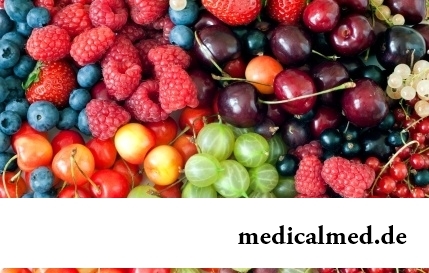
All the known slogan "Protect Men!" arose not from scratch. In a sense, the nature created men much less adapted for vital disorders, than it seems at first sight. Statistically, men are ill more often, than women, have the majority of illnesses heavier and earlier die. The situation is aggravated with the fact that our fathers, husbands, brothers and sons are not always inclined to care for the health. Partly it happens because of unwillingness of t...
Section: Articles about health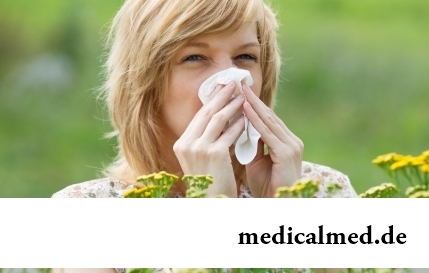
There comes the season of issues. Many Russians already dream of outdoor recreation, trips, beautiful seaside beaches....
Section: Articles about health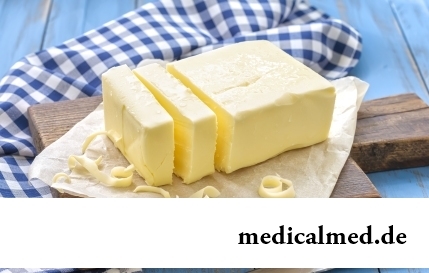
Within several decades of our compatriots convinced that the use of butter nasty affects a condition of coronary vessels. As a result the reputation of a product was impaired thoroughly a little, and many almost ceased to include...
Section: Articles about health
Contrary to popular belief, the multiple sclerosis (MS) is not connected neither with sclerous changes of walls of vessels, nor with age forgetfulness and problems with concentration of attention. This disease has the autoimmune nature. Pathological process is expressed in degradation of nervous tissue and destruction of its enveloping layer - a myelin. Multiple damages of the central nervous system which are shown by decrease in sight, bystry fatigue, on become result of development of an illness...
Section: Articles about health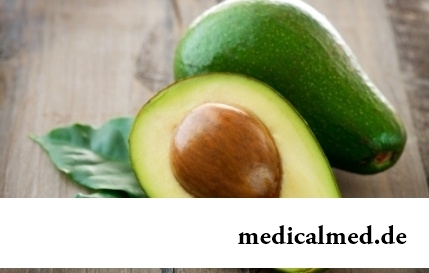
Life does not indulge the modern woman special emotional comfort and carelessness. Fatigue, troubles at work, misunderstanding...
Section: Articles about health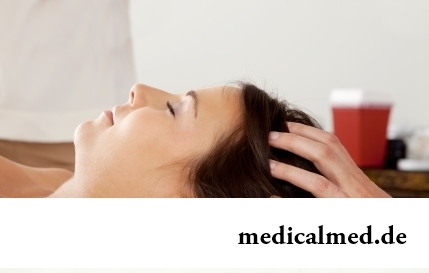
On the head of the person about one million hair follicles, or as they are called still, hair bulbs are located. At the time of the birth most of them is in the "sleeping" state, but within several weeks follicles become more active, and from them begin р...
Section: Articles about health
Almost each of us during life faced dissatisfaction with own body. At such moments, as a rule, we begin to shame ourselves, urgently we go on the most rigid diet promising minus of 10 kg in a week, or we exhaust ourselves in the gym to almost death. As a rule, similar attempts come to an end with a campaign to the refrigerator for jamming of the next stress. Further history repeats itself with individual frequency....
Section: Articles about health
